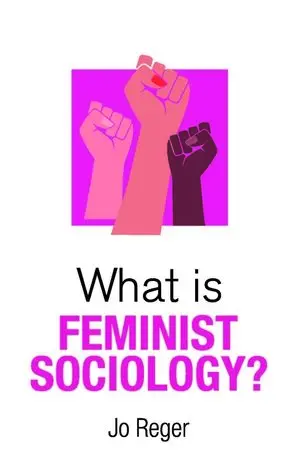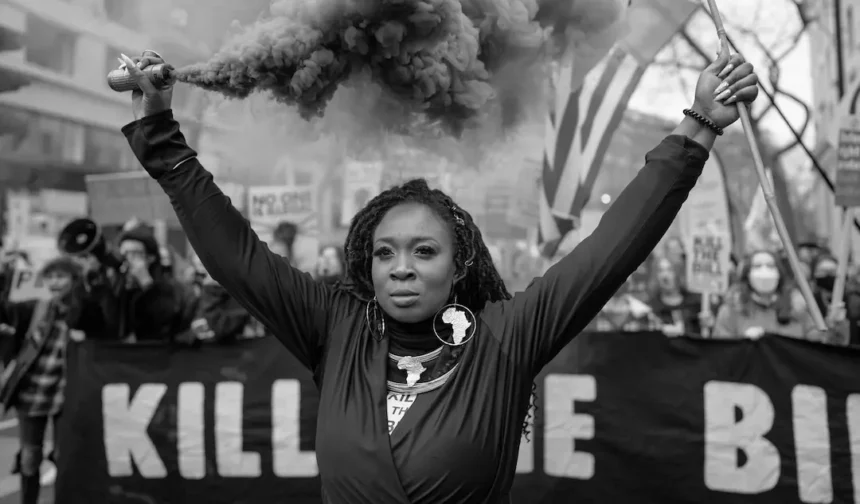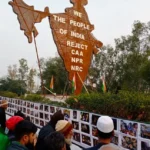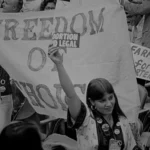Around the world, academic disciplines addressing gender and systems of inequality are under attack. The study of gender has been labeled “ideology not a science” and prohibited in countries such as Hungary with scholars from Sweden to Brazil, Poland to Germany reporting increasing hostility toward their work.
“The war on gender studies is a pillar in the authoritarian critique of liberalism,” according to education reporter Jennifer Evans, connecting the liberation focus of gender scholarship with a shift in world politics. In the United States, Introduction to Sociology, a course that addresses gender inequality and stratification among other topics, has been banned from college general education classes in the state of Florida.
Efforts by early feminist sociologists resulted in a multi-prong approach of addressing issues of inequality and challenging patriarchal and misogynistic cultures and societies.
So why is the study of gender so threatening and an issue at the national and international level of world politics? The answer, I argue, lies in the origins of feminist sociology, and consequently the study of gender. Emerging from a lively women’s movement and evolving into the study of multiple forms of social inequality, feminist sociology challenges the status quo, disrupting age-old patterns of hierarchy and dominance. It is this revolutionary history and the contemporary state of the discipline that I examine in my book What is Feminist Sociology?.
Growing with a Movement
To understand the development of feminist sociology, it is important to recognize the discrimination and oppression women faced in society in the 1970s, a time corresponding with the reemergence of the US women’s movement.

For example, while feminist activists focused on a multitude of issues, rape was an issue that drew attention from both radical and more mainstream feminist groups.
Feminist sociology came to include women in the creation of knowledge as well as the creators of knowledge.
At this time in the United States, women’s charges of rape were often met with skepticism by police and very rarely resulted in arrests or convictions.
Women reported being asked how many times they orgasmed during an attack when attempting to file a police report.
Women were also told it was best to not resist since any attempts to escape would be futile. Since marital rape had no legal definition, consent was not considered applicable to married women who could be raped by their husbands.
Moving into the Academia
Bolstered by women’s movement activism, feminist scholars turned their attention to these and other issues connecting scholarship, activism, and women’s real life experiences. For instance, Vicki Rose interviewed feminist anti-rape activists who were documenting women’s experiences and argued that rape was a social problem demanding societal attention.
Testing the assumption that resistance to rape was futile in all interactions, Pauline Bart decided to talk to women about their experiences and found that sometimes resistance worked. Richard Gelles questioned married women and found that they identified what happened to them as rape even though there was no legal definition for their experiences. With each of these studies, some of the myths and stereotypes about rape were eroded and a feminist way of doing sociology entered academia.
Yet, rape was just one area where feminist scholars turned their attention. Feminists in sociology departments turned their attention to women’s life experiences that had yet to be examined, such as the household division of labor, the ways in which women and children were subjected to violence, economic inequality, occupational segregation, wage disparity, the impact of divorce on women and children, and a host of other issues.
Changing Social Science
While these studies challenged stereotypes and misinformation about women and children in society, feminist scholars also critiqued the common sociological assumption that men’s experiences could be seen as universal in studies. Groundbreaking sociologist Jesse Bernard called the sociology of the time “science of male society.” The Nebraska Feminist Collective, a group of scholars concerned with sexism, racism, classism, and heterosexism within sociology, called this the “people=male” equation in scholarship in a critique of sociology titled “A Feminist Ethic for Social Science Research.”
Feminist sociology at its inception often focused on the lives of white women.
While feminist sociologists addressing the “people=male” perspective engaged in a wide range of studies, one central focus was addressing the positivistic academic orientation of sociology. Feminist sociologists such as Dorothy Smith and Patricia Hill Collins contested accepted theories on the creation of knowledge and, in the process, reconceptualized sociology bringing race and gender into theoretical frameworks. Attacking the value-neutral and dispassionate viewpoint of positivism, feminists such as Sandra Harding argued for reflexivity and positionality to ground research and scholarship. In doing so, the lives of scholars were acknowledged and integrated into the research process.
Feminist ethics expanded beyond the expected institutional review board or research ethics committee review and mandated attention to power and privilege and a responsibility to those being studied. And perhaps most importantly, feminist scholars prioritized scholarship and research that was activist and transformational with the goal of giving back to the populations and communities being studied.
Women as Professors
Although broadening the scope of inquiry to include the experiences of women, children and other marginalized groups is a core focus of feminist sociology, the experience of women in academia also came under scrutiny. Myra Marx Ferree and Beth Hess note that while professors steadily increased over time, the positions they held were often ones of difficulty. Women in the academia struggled to combine career and family, receiving little to no support from the university or at home.
The concept of intersectionality is under attack with detractors claiming it is a form of identity politics.
As a result, they were often trapped in positions with limited mobility and diminished status. The lack of positions and opportunities for women also became a focus of feminist sociology with organizations such as Sociologists for Women in Society, formed in 1970, having one of its goals being to support and promote women with in the profession.
This is the same time that the creation of sociological associations focused on women and gender spread globally with groups developed in Britain, Canada, Australia, and India to name a few.
These efforts by early feminist sociologists resulted in a multi-prong approach of addressing issues of inequality and challenging patriarchal and misogynistic cultures and societies. In essence, feminist sociology came to include women in the creation of knowledge as well as the creators of knowledge. In doing so, it honors multiple ways of knowing and seeks to make change in the world. Karen Rosenberg and Judith Howard sum up feminist sociology as seeking integration into all areas of mainstream sociology, embracing liberatory politics, developing theories of gender, and transforming power relations in the academy and beyond.
Backlash Against
Born out of a predominately white women’s movement intersecting with a less-than-diverse academia, feminist sociology at its inception often focused on the lives of white women. This led to a series of challenges that continue to fundamentally alter feminist sociology. Key to these shifts is a range of scholars from Black and Chicana feminist theorists, Indigenous scholars, transnational academics, and queer theorists, to name a few. In sum, born out of revolution and resistance, feminist sociology continues to be transformed by those who have been marginalized.
Feminist sociology is the result of a revolution and that revolution is ongoing.
Having its roots in the women’s movement has also brought backlash to feminist sociology. Social movement scholars tell us that efforts for change society often trigger countermovements populated by people who find their beliefs, values and privilege challenged. Some of those attacking may themselves be academics, finding some of the principles of feminist sociology perplexing and problematic. This is evident in the critique of positionality and reflexivity in research that has emerged.
Critics call positionality and reflexivity “me-search,” seeing the researcher’s experiences and life as unimportant in the research process. Clinging to the value neutral and objective disposition of positivism, critics seek to reestablish positivism as the only scientific method, ignoring decades of feminist research and theorizing. In addition, the concept of intersectionality is under attack with detractors claiming it is a form of identity politics that seeks to mute white men while constructing a hierarchy of victimhood.

This backlash points to a more subtle attack on gender as a subject of study. Positionality and reflexivity emerged from the consideration that lived emotional experiences shape the research process.
These ideas draw on those of feminist philosophers and social scientists who identified how rationality and emotional distance align with characteristics desired (and required) for men while relationships and emotions have been assigned to women.
By valuing these feminine characteristics, feminist researchers seek to deepen their relationships with the people they study, leading to broader and richer understandings.
Intersectionality, developed and defined by Kimberlé Crenshaw, emerged from the need to see Black women as both Black and women, something not provide for in the law. Through intersectionality, inequality becomes more complex. For Black women, gender intertwines with race in a way that cannot be separated.
The result is the understanding that people experience the world through the interweaving of multiple social identities. Some of those weavings bring marginality and some bring privilege. Intersectionality then undoes the idea of a merit-based society where all earn the privilege they receive. The concept reminds us that all privilege is not earned and points to the ways in which gender, combined with other social identities, can position people in society.
The Ongoing Impact and Challenges of Feminist Sociology
Stepping back from the history that formed feminist sociology and all of its developments, it is clear that feminist sociologists have challenged some of the core pillars of inequality in society.
Those include the construction of a gender system that marginalizes and silences women, the creation of a system of knowledge that privileges characteristics valued in men (i.e., rational, dispassionate, removed), and separation of people’s identities into disconnected categories underplaying the dynamics of marginalization.
As such, it would be surprising if feminist sociology and the study of gender was not under siege by those who believe in gender and racial hierarchies. Feminist sociology is the result of a revolution and that revolution is ongoing. I invite you to learn more about the liberatory potential of feminist sociology.









